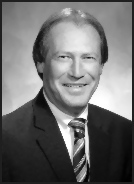Teams of Boise teachers are working this spring to write curriculum to match the new Common Core math and English language arts standards.

The teachers are on a deadline. Common Core will be implemented in Boise and all Idaho districts this fall. Boise School District Superintendent Don Coberly supports this schedule, and the standards themselves, but suggests a move that could ease some of the controversy. He says Idaho should ease into Common Core testing, perhaps giving the tests for a couple of years before counting the results.
“That would be a nice transition for people, and give them time to adjust,” Coberly said in an interview Monday.
Common Core assessments are scheduled to begin in the spring of 2015. And in the same way the standards are supposed to require critical thinking, the assessments will move away from multiple choice questions toward problem solving and essay questions.
Even the state Education Department — which, like the Boise district, supports the Idaho Core Standards — expects a dropoff. Based on results in other states, the number of students who score at grade level could drop by one third.
“Even with the best professional development the state can provide and the most highly effective teacher in the classroom, we must recognize these standards are higher,” the department says on its website. “It will take a few years for Idaho students to master them.”
While Coberly and Boise School Board President A.J. Balukoff are concerned about the testing schedule, they are unqualified in their support of Common Core.
The Boise district underscored its Common Core support this week with the release of a white paper hailing the new standards. District officials met with school principals Tuesday morning to review the report.
The two-page document refutes several recurring Common Core criticisms: the idea that the new standards will water down curriculum, and the English standards will push classic literature out of the classroom.
In Boise, the Common Core-driven curriculum will incorporate a deeper study of math concepts and increased writing requirements. Classic literature will remain a “key component” of the curriculum, according to the white paper. Students will be expected to show an in-depth understanding of the literary works, rather than sheer memorization of facts and details.
“The power of Common Core is not in the shifting of the content standards but rather the shift in understanding the practices and processes that authentically lead to mastery,” says the district white paper.
While critics decry Common Core as a top-down step toward a federally driven curriculum, Coberly says the districts have real flexibility in writing a curriculum to match Common Core. Coberly says the district is writing to standards that fit perfectly with its long-range goals: better preparing high school graduates for college.
“It’s a good move for our district,” he says.
